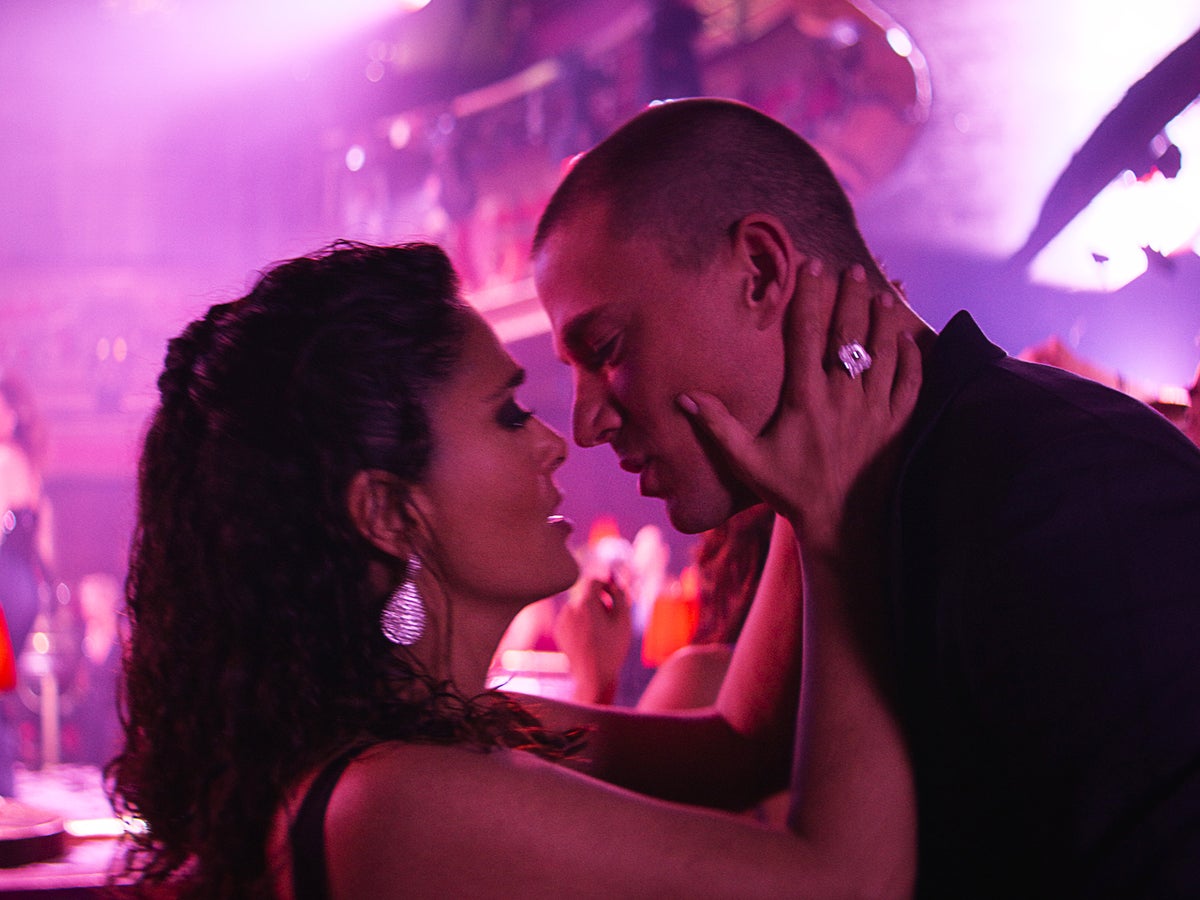
“No woman wants to be suffocated by testicles.” This pearl of wisdom comes from Salma Hayek Pinault who plays grand dame Maxandra in Magic Mike’s Last Dance, the third (and presumably final) instalment in Channing Tatum’s stripper franchise. Maxandra has coaxed our hero, down-on-his-luck former stripper Mike Lane (Tatum), to London with the promise of $60,000 and the opportunity to direct his very own erotic dance show. But Maxandra’s vision, which quickly becomes Mike’s vision, too, is one of relatively chaste refinement. The aggressive air-humping and up-close gyrating of the former films are – for the most part – nowhere to be seen, replaced by ballet and interpretive modern dance.
But is “suffocation by testicles” not the very heart and soul of the Magic Mike franchise? Is that not the joy? Maxandra talks a good game about how liberating it is to be on the receiving end of a Mike Lane lap dance. (So life-changing is the experience that it inspires her to seek revenge against her dirtbag billionaire ex by filling his theatre with sexy, shirtless men.) But the show she and Mike eventually put on is so impersonal and sanitised that it’s hard to believe any of the women in the audience would share in that same libidinous revelation. While Magic Mike’s Last Dance is certainly entertaining, thanks to returning director Steven Soderbergh, there’s no escaping how aimless the film feels in comparison to what came before.
Soderbergh’s original film, released in 2012, was a somewhat grounded take on the socio-economic pull of sex work during America’s Great Recession. It drew directly from Tatum’s own experiences as a stripper. I highly doubt, however, that its political commentary was the reason why the film made more than 20 times its $7m budget at the box office. There was something radical about how unvarnished and immediate its depiction of female desire was. The women who Mike danced for weren’t there for romance.
Its sequel, 2015’s Magic Mike XXL, was a full-blown triumph of the female gaze. Mike, his stripper cohorts and their audience had reached a place of mutual empowerment. The men find fulfilment in lavishing on women the kind of attention they deserve but rarely receive in their own lives. They make the case that stripping can be a feminist act.
What does it tell us about the franchise’s audience that its third film – which draws directly from the current London live show – makes it difficult to tell what’s dancing and what’s stripping? The previous films were centred almost entirely on the individual charisma of the performers and the elaborate fantasies they curated on stage, whether that be a mock wedding or a rogue cowboy. But, with Mike having left his old pals behind (Joe Manganiello and Matt Bomer among them), we’re barely acquainted with these new dancers before they start backflipping around the place. These men are presented as bodies first, arguably more superhero than sexual wish-fulfilment. The question of what women desire is a fascinating one, but it’s been stubbornly ignored by Reid Carolin’s script, despite Carolin having penned the two previous Magic Mike films. Instead, it offers some bizarre musings on dance as “a compass orientated only to liberty”.
What little is left of the old Magic Mike, that giddy female pleasure, is mostly confined to the performances of Tatum and Hayek Pinault. Their chemistry is electric. It must be said, though, that Tatum’s climactic dance number in the rain brims with such lust that it almost single-handedly corrects the flaccidness of what preceded it. Back in 2021, Tatum announced Magic Mike’s Last Dance with the promise that “the stripper-verse will never be the same”. This film is certainly different. But the question lingers: why?
Dir: Steven Soderbergh Starring: Channing Tatum, Salma Hayek Pinault, Ayub Khan-Din, Juliette Motamed, Vicki Pepperdine, Gavin Spokes. 15, 110 minutes.







